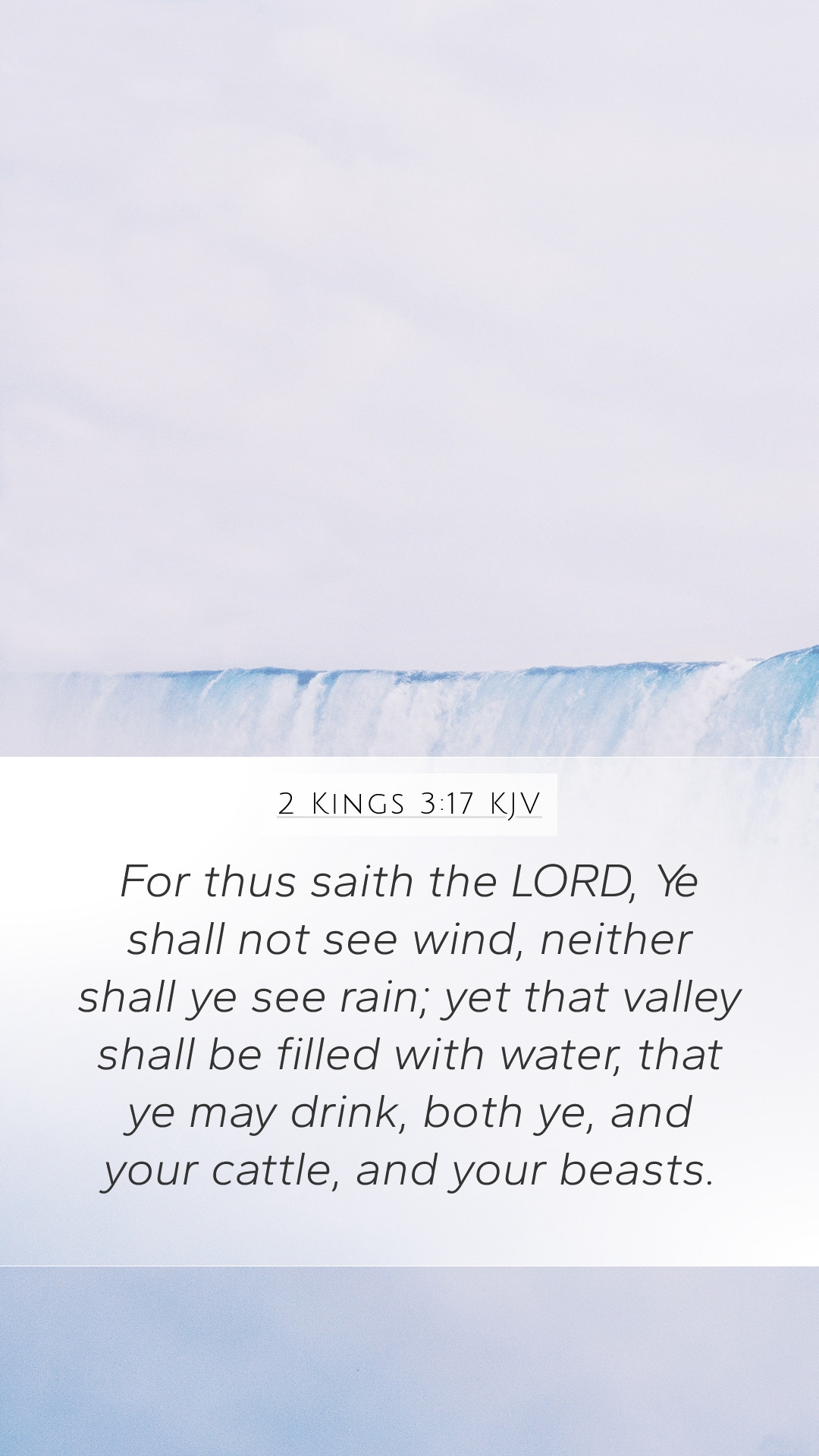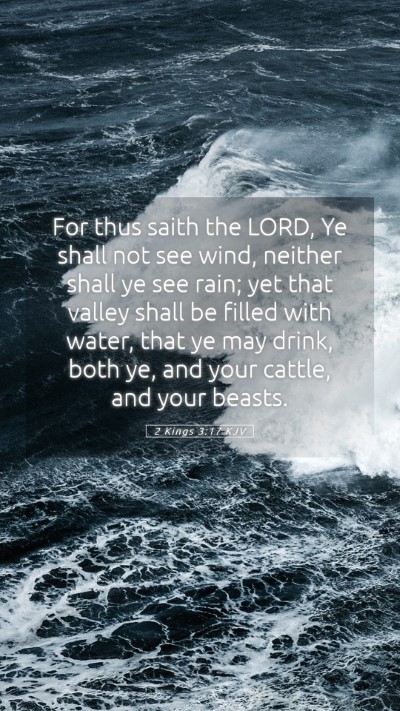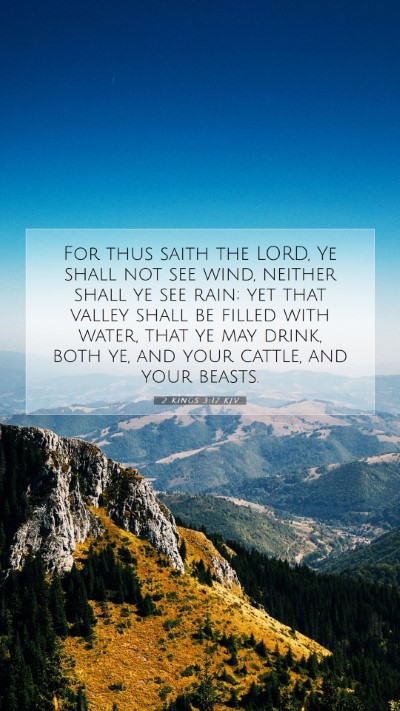Understanding 2 Kings 3:17
In the pursuit of bible verse meanings and bible verse interpretations, 2 Kings 3:17 offers profound insights that can significantly enhance our bible study insights. This verse states:
"For thus saith the Lord, Ye shall not see wind, neither shall ye see rain; yet that valley shall be filled with water, that ye may drink, both ye and your cattle and your beasts." (2 Kings 3:17)
Contextual Background
To grasp the meaning of Bible verses, it is crucial to consider the historical and spiritual context of the passage. This verse is set during a dire time for Israel, as the kings of Israel, Judah, and Edom seek water for their armies in the desert.
Historical Context
The passage describes a coalition of kings (Joram of Israel, Jehoshaphat of Judah, and the king of Edom) who were facing a severe drought. They consulted the prophet Elisha to inquire about divine help, leading to God’s promise through Elisha that water would be provided without the visible sign of rain or wind.
Key Insights from Commentaries
Matthew Henry's Commentary
Matthew Henry emphasizes that the promise of water signifies God's mercy and provision, even in times of desperation. His commentary mentions that this miraculous supply was not to come through the common means (rain) but rather through divine intervention, illustrating God's power and willingness to help.
Albert Barnes' Commentary
Albert Barnes elaborates on the brevity of God’s nature in this passage. He points out that God's ways are often beyond human understanding, where He does not always work through conventional means. This serves as a lesson on faith, showing that despite the absence of visible solutions, God’s provisions are assured.
Adam Clarke's Commentary
Adam Clarke delves deeper into the significance of water in Jewish tradition, where it symbolizes life and sustenance. He argues that the assurance of water represents God’s grace and the sustenance provided to His people, which is accomplished in ways that can often go unnoticed.
Theological Implications
This verse speaks volumes about the relationship between God and His people. It showcases:
- Divine Provision: God's ability to meet the needs of His people in miraculous ways.
- Faith in God's Words: Encouragement to trust divine promises even when circumstances seem dire.
- Unexpected Solutions: Assurance that help can come without the usual signs that one may look for, urging believers to be prepared for divine surprises.
Applications for Daily Life
Understanding 2 Kings 3:17 helps us to apply the insights within our daily lives:
- Trusting God: Just as the kings had to trust Elisha’s word, we too are called to trust in God's promises regardless of our situations.
- Recognizing God’s Work: Keeping an eye out for how God may be working in our lives, even when it may not align with our expectations.
- Spiritual Preparedness: Being spiritually prepared for God’s provisions, just as the Israelites prepared for the water that came unexpectedly.
Cross References
This verse can be cross-referenced with:
- Isaiah 55:10-11 - God's word will accomplish what it intends.
- John 7:38 - The river of living water that Jesus promises to those who believe.
- 2 Chronicles 20:20 - Seeking the Lord results in being established and prosperous.
Conclusion
Through biblical exegesis and careful study of the commentaries like those of Matthew Henry, Adam Clarke, and Albert Barnes, we affirm that 2 Kings 3:17 teaches valuable lessons on faith, divine provision, and trusting God's promises. Each insight reinforces our understanding of Scripture analysis and bible study guides.
As you engage in online Bible study or bible study groups, may this passage inspire questions about your own reliance on God and the many forms His provisions may take.


